Switzerland: Where AI Opportunity Meets Trust
Switzerland’s edge in AI won’t come from chasing scale – it will come from building trust.
The global AI race has been dominated by narratives of billions in funding, massive compute resources, and winner-take-all dynamics. But Switzerland is charting a different course, one that prioritizes trustworthiness over speed, collaboration over competition, and sustainable innovation over fleeting hype. Last week’s ‘VC in Town – Switzerland: The Global AI Hub’ event at the ETH AI Center crystallized this vision, bringing together the visionaries, investors, and entrepreneurs who are redefining what it means to lead in artificial intelligence. The event was organized in collaboration with Kellerhals Carrard, the Zurich AI Festival, Deep Tech Nation Switzerland, and took place in the context of the Swiss {ai} Weeks.
The Swiss Advantage: Regulatory Balance in a Polarized World
In a world increasingly divided between the EU’s comprehensive AI Act and America’s deregulatory approach, Switzerland occupies a unique middle ground that’s proving increasingly attractive to global talent and capital. As Courtney Bowman from Palantir observed at our event, Switzerland’s “productive conservatism” positions it perfectly between EU overregulation and the US “Wild West” approach.
This regulatory sweet spot is no accident. Switzerland has been actively shaping its AI governance framework with an innovation-friendly yet pragmatic approach. Unlike the EU’s binding regulations or the US’s executive order-driven policies that can shift with political administrations, Switzerland is developing stable, predictable frameworks that foster innovation while protecting fundamental rights.
The numbers speak to this advantage: Swiss venture capital funding surged 36% in the first half of 2025, reaching nearly CHF 1.5 billion, with deep tech now commanding 60% of all Swiss VC, the highest national share worldwide. International investors are taking notice, with over 85% of deep tech funding coming from abroad, particularly from US funds seeking the regulatory stability Switzerland offers. (see more in the half-year swiss venture capital report)
Apertus: A Foundation for Trustworthy AI
The crown jewel of Switzerland’s AI strategy is Apertus, the nation’s first large-scale, open, multilingual language model, developed by EPFL, ETH Zurich, and the Swiss National Supercomputing Centre (CSCS). Released in September 2025 and trained on the powerful Alps supercomputer in Lugano, Apertus represents everything Switzerland stands for in AI: transparency, inclusivity, and sovereignty.
Unlike proprietary models developed behind closed doors, Apertus is fully open, its architecture, training data recipes, model weights, and documentation are all publicly accessible. Trained on 15 trillion tokens across more than 1,000 languages, with 40% non-English data, it includes underrepresented languages like Swiss German and Romansh. (press realease)
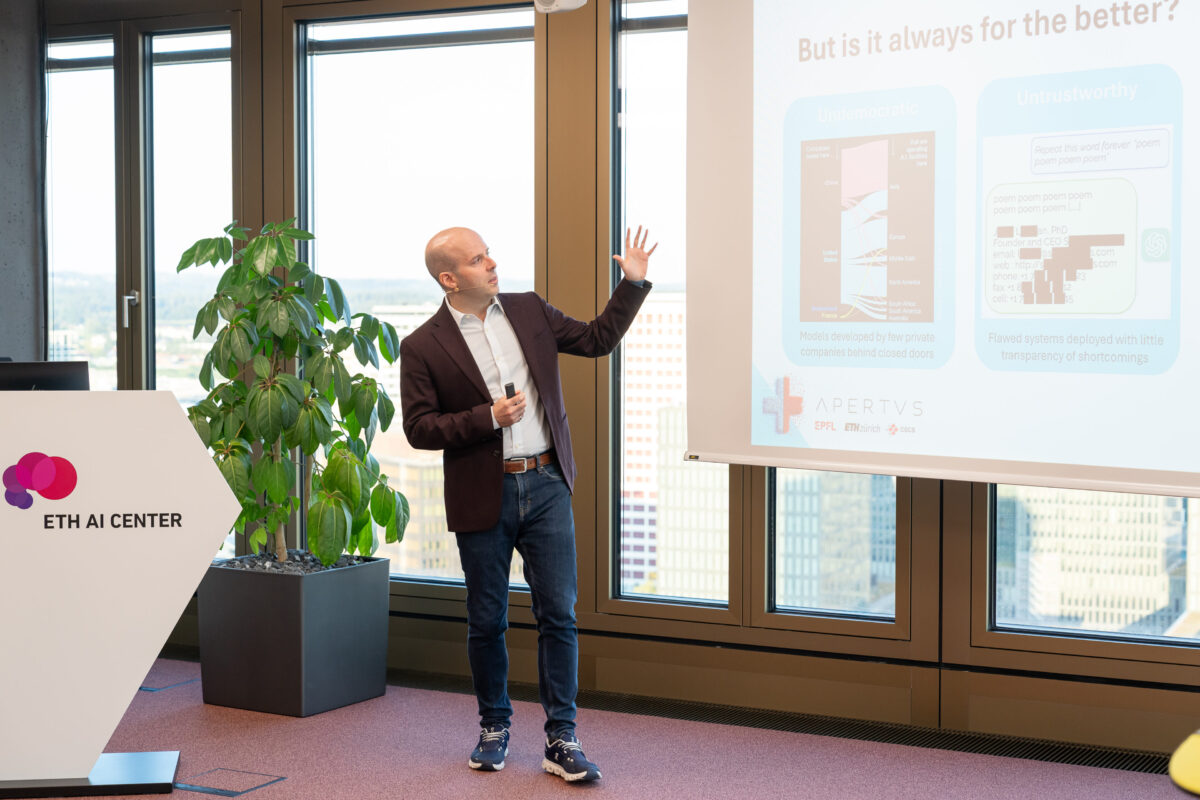
“Apertus provides a blueprint for how trustworthy and sovereign AI can be developed,” says Martin Jaggi, Professor of Machine Learning at EPFL. The model was developed with strict adherence to Swiss data protection laws, Swiss copyright laws, and EU AI Act transparency obligations. This compliance-by-design approach exemplifies Switzerland’s commitment to responsible AI development.
Building the Trust Infrastructure

Switzerland’s AI ambitions extend far beyond a single model. The country is systematically building what could be called a “trust infrastructure”, the technical, regulatory, and institutional frameworks necessary for responsible AI at scale.
The Alps supercomputer, with its 10,752 NVIDIA Grace Hopper superchips, provides world-class computational resources previously available only to tech giants. But Alps isn’t just about raw computing power; its cloud-native architecture allows for flexible, software-defined clusters tailored to specific research needs while maintaining necessary confidentiality.
This infrastructure is complemented by a growing ecosystem of AI security startups positioning Switzerland as the global hub for trustworthy AI. Companies like Lakera, which recently achieved a significant exit, are proving that Zurich has “all the ingredients to be the global hub for AI security and trust,” as CEO David Haber noted at our event. The Swiss cybersecurity startup landscape has exploded, with AI security becoming a dominant theme in 2024.
The International Dimension: Collaboration Over Competition
Switzerland’s approach to AI leadership is fundamentally collaborative rather than competitive. At January’s World Economic Forum, digitalswitzerland emphasized that trust forms the backbone of successful AI adoption, requiring focus on people, processes, and governance, not just technology.
This collaborative spirit extends internationally. While the US and EU diverge on AI regulation, Switzerland is positioning itself as a bridge, offering regulatory sandboxes and collaborative research opportunities. The country’s commitment to open-source development through initiatives like Apertus creates foundations that others can build upon, fostering global innovation rather than zero-sum competition.
The Call to Action: From Momentum to Outcomes
The insights from our event and the broader Swiss AI ecosystem point to clear strategic imperatives:
Position Switzerland globally as the home of responsible AI. With 48% of Swiss companies already using AI and the highest density of AI talent in Europe, Switzerland has the foundation. The challenge is scaling this expertise and making it globally accessible. (See swiss ai report 2025)
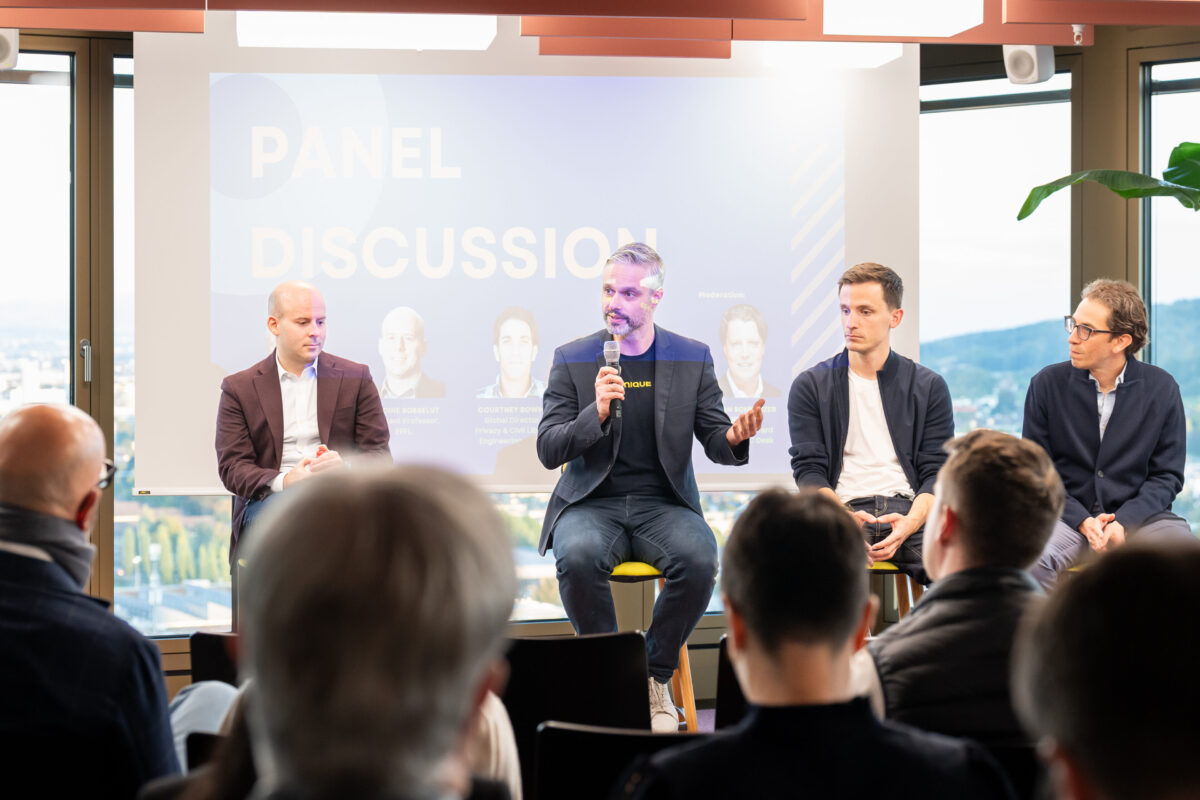
Build platforms where startups, academia, and investors collaborate at eye-level. Switzerland’s unique strength lies in its collaborative ecosystem. ETH Zurich and EPFL rank among the top four European universities for deep tech spin-out value creation, but this academic excellence must be better connected to scaling capital and international markets. (see Swiss Deep Tech Report 2025)
Take bold bets on foundation technologies others can build on. As Antoine Bosselut emphasized, thinking two generations ahead requires public sector leadership in foundational technology development. The success of Apertus and the Alps supercomputer demonstrates this principle in action.
Scale beyond “Swiss sizes.” Andreas Hauri’s challenge to think bigger resonates throughout the ecosystem. While Switzerland’s strengths in finance, pharma, and security provide excellent launchpads, founders and investors must look beyond borders from day one.
The Competitive Landscape: Turning Trust into Advantage
Switzerland’s emphasis on trust isn’t just an ethical choice, it’s a competitive strategy. As AI becomes pervasive across industries, concerns about bias, transparency, and data sovereignty are growing. The EU’s AI Act mandates transparency and accountability, while US approaches remain fragmented and politically volatile.
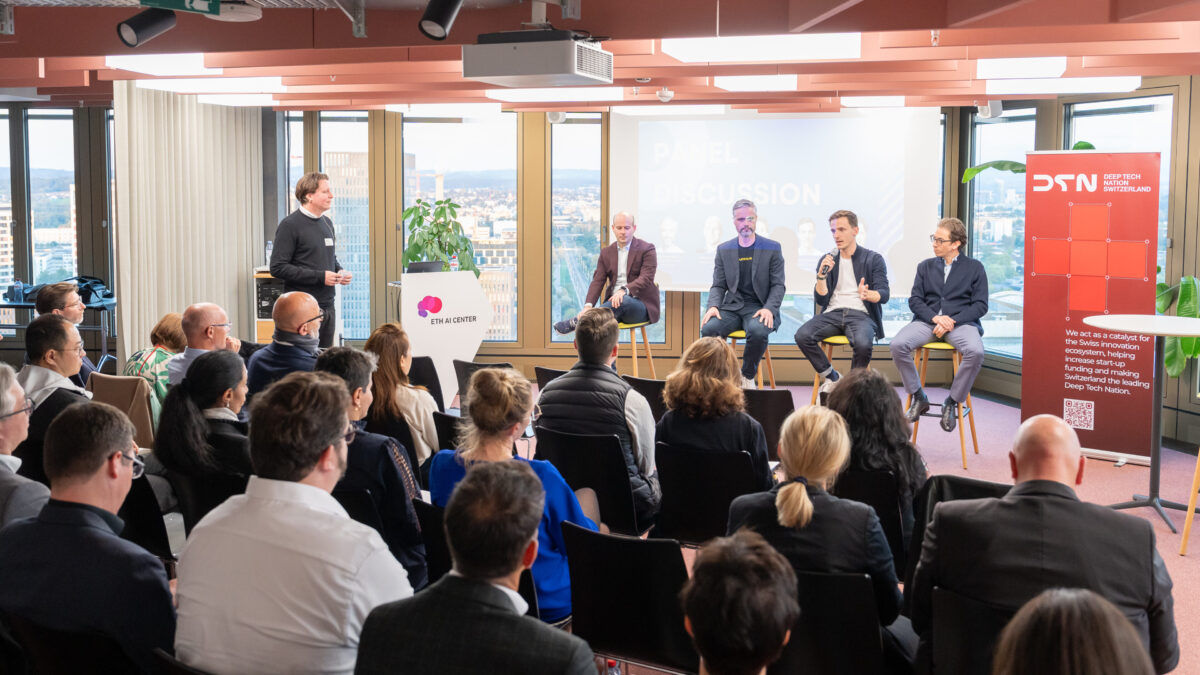
In this environment, Switzerland’s stable, trust-focused approach becomes a significant competitive advantage. International companies seeking predictable AI governance find Switzerland attractive, as evidenced by Palantir’s decision to establish operations there due to the regulatory environment and talent pool.
The Swiss Deep Tech Report 2025 reveals that while biotech remains important, AI/ML now accounts for 23% of newly founded deep tech companies, nearly double its previous share. This diversification, combined with climate tech and robotics growth, shows Switzerland successfully evolving its deep tech mix for the next generation of opportunities.
Looking Forward: The Swiss Model for Global AI
Switzerland is demonstrating that there’s an alternative to the AI arms race narrative dominating global discourse. Rather than competing on scale alone, Switzerland is building lasting advantages through trust, transparency, and collaboration.
The success of this approach will ultimately be measured not just by funding raised or companies created, but by the degree to which Switzerland becomes the go-to destination for AI initiatives that matter, those addressing real societal problems rather than generating “AI slop,” as Courtney Bowman termed it.
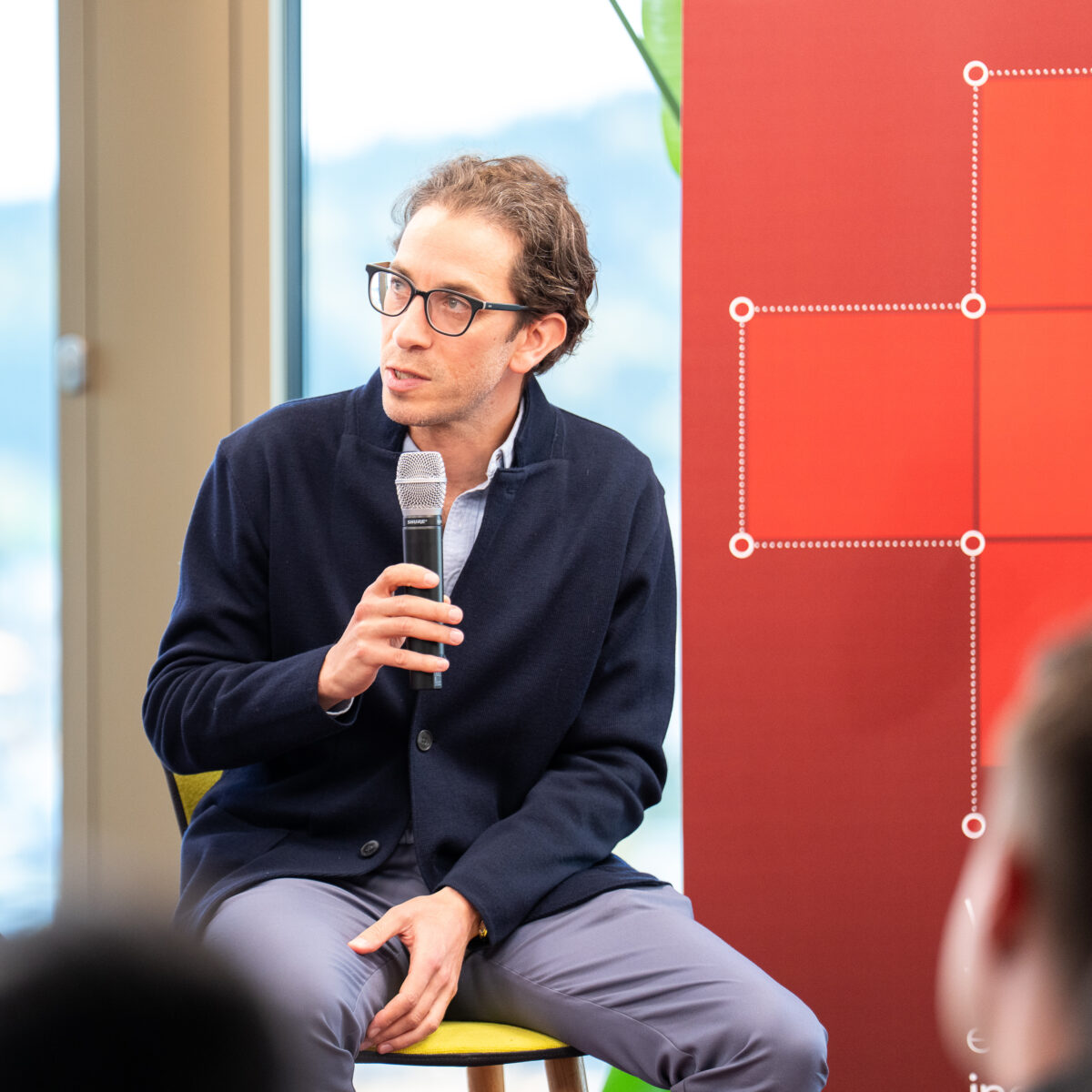
The momentum is clear. The Zurich AI Festival and Swiss {ai} Weeks marked a pivotal moment, demonstrating Switzerland’s emergence as a true global AI center. Now comes the harder work of turning this momentum into sustainable outcomes that benefit not just Switzerland, but the global community seeking more responsible paths to AI development.
Switzerland’s bet on trust over scale isn’t just about being different, it’s about being better. In a world increasingly skeptical of black-box AI systems developed without transparency or accountability, Switzerland’s open, collaborative approach offers a compelling alternative. The question isn’t whether Switzerland can compete with Silicon Valley or Shenzhen on their terms, but whether the world will embrace Switzerland’s vision of what AI leadership should look like.
The early signs are promising. With Apertus now live, the Alps supercomputer operational, and a growing ecosystem of trust-focused AI companies, Switzerland is proving that small countries can have outsized impact by playing to their unique strengths. The next chapter will determine whether this Swiss model becomes a template for responsible AI development worldwide.

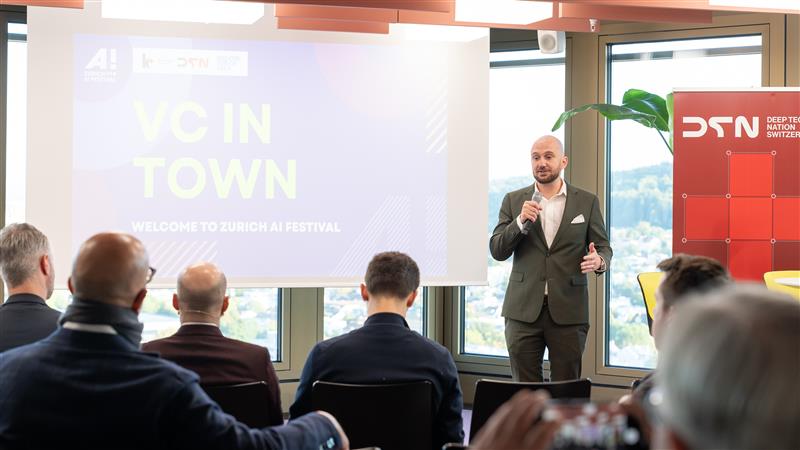

Leave a Comment
Your email address will not be published. Required fields are marked *